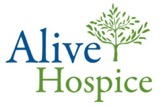Summer Archives
Jack TrapaniNashville, Tennessee - Alive Hospice |
 This summer, I worked with Alive Hospice in Nashville, gauging the utilization and perspective of hospice care from the standpoint of healthcare professionals. Hospice care can be beneficial for a patient when used properly. However, many patients may not reap the benefits hospice care programs have to offer due to delayed admittance into a hospice care program. Providing Alive with an accurate depiction of the cultural beliefs, institutional policies and physician practices that surround hospice care is crucial for the organization’s ability to counteract the issue of late admittance. This data was obtained through one-on-one interviews with physicians in Tennessee.
This summer, I worked with Alive Hospice in Nashville, gauging the utilization and perspective of hospice care from the standpoint of healthcare professionals. Hospice care can be beneficial for a patient when used properly. However, many patients may not reap the benefits hospice care programs have to offer due to delayed admittance into a hospice care program. Providing Alive with an accurate depiction of the cultural beliefs, institutional policies and physician practices that surround hospice care is crucial for the organization’s ability to counteract the issue of late admittance. This data was obtained through one-on-one interviews with physicians in Tennessee.
The project I conducted this summer included three main phases. The first stage involved developing a survey that could be used to standardize the one-on-one interviews with physicians. While the general goal of learning more about delayed admittance into hospice programs was articulated by Alive Hospice, I was given complete freedom to determine what specific questions and themes the survey might interrogate.
I spent the first week conducting independent research and meeting with Alive Hospice employees in order to understand their organization from the inside. This provided me with the ability to confidently choose major themes in the survey that reflected the values and mission of the Alive Hospice organization. A list of questions was then written and developed with the help of my supervisor, Jennifer Marciano. Jennifer was incredibly important for this entire experience. She perfectly balanced creative freedom and guidance throughout the project in a way that kept me from feeling lost while also substantially contributing to the project. The themes of the survey involved physicians’ opinion of hospice field, physicians’ hospice referral strategy, barriers that prevent patients from behind admitted to hospice, hospice education and advanced directives.
The next phase of the project revolved around editing the survey developed. This required input from other Alive employees who worked closely with outside providers, approval by Jennifer’s supervisors, and a beta testing phase. The beta testing was the most time intensive part of this portion of the project. I reached out to both pre-medical and medical students asking them to participate in a survey about hospice care. Of the students interviewed, two were pre-medical and nine were medical students. This data was valuable and also provided insight into how well our questions assessed the themes developed.
The final phase of the project was to conduct one-on-one physician interviews. It was understood that the providers could be specialized in any area. I was able to get twenty-two physicians to agree to the interviewing process. Each interview lasted anywhere between ten and forty minutes. Once the data was collected, a report was written for Alive Hospice that summarized the data. Through the process of independently conducting a qualitative research project, I was able to grow both professionally and personally, gaining a life-changing perspective on death.
